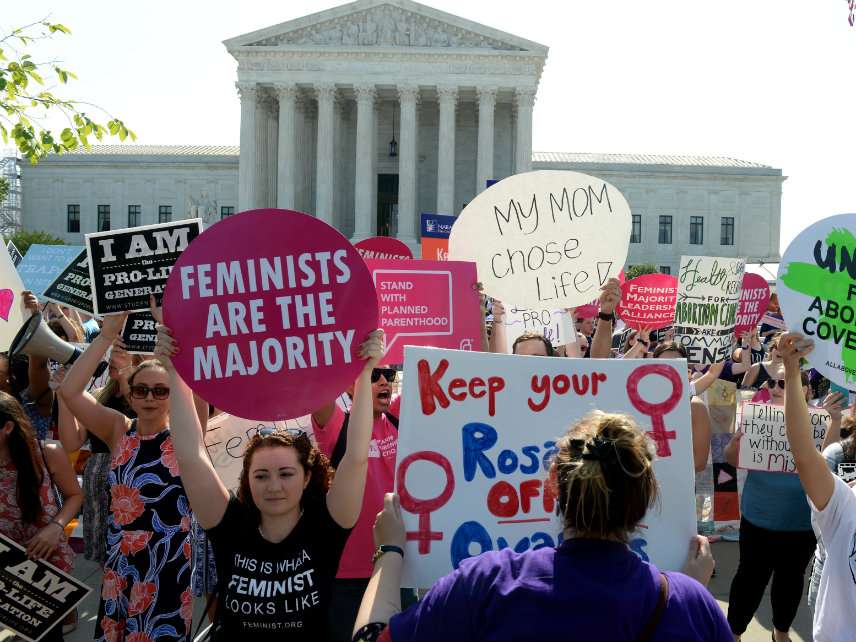Doctors Call for Decriminalization of Self-Induced Abortion
With abortion pills easily accessible online, the issue could be a big one in coming years.

The largest American association of reproductive- and gynecological-health physicians is calling on U.S. lawmakers to stop the criminalization of self-induced abortion.
In a new position statement, the American College of Obstetricians and Gynecologists (ACOG) "opposes the prosecution of a pregnant woman for conduct alleged to have harmed her fetus, including the criminalization of self-induced abortion." It also "opposes administrative policies that interfere with the legal and ethical requirement to protect private medical information by mandating obstetrician-gynecologists and other clinicians to report to law enforcement women they suspect have attempted self-induced abortion."
While abortion up to a certain point is legal across America, many states still criminalize the procedure if it's not performed by a licensed physician. That means a woman who terminates (or attempts to terminate) her own pregnancy could be guilty of a crime even if doing the same thing at a Planned Parenthood clinic would be legal.
Far from protecting women from unsafe abortions, these policies "may result in negative health outcomes by deterring women from seeking needed care, including care related to complications after abortion," ACOG warns.
The issue could be a big one in coming years. While self-induced abortion is certainly nothing new, the ability to self-induce an abortion safely and with relatively minimal pain is. "Medical abortion"—i.e., abortificient pills effective through at least the first trimester of pregnancy—makes that possible. And foreign internet pharmacies make clandestinely getting abortion pills easier than ever.
Combine this ease of access with rising U.S. medical costs, the disappearance of abortion clinics in many states, an immigration crackdown that leaves undocumented women afraid of too much exposure, and regulations prohibiting the use of telemedicine to prescribe abortion pills and an increase in illegally-obtained pills and self-induced abortions is all but inevitable.
But as it stands, women who get caught using illegally-obtained abortion drugs may face charges for child endangerment, feticide, or homicide. "In some cases," notes ACOG, "women have been prosecuted under laws that explicitly criminalize self-abortion or that criminalize harm to the fetus, while in other cases, women have faced charges related to the disposal of pregnancy tissue" or for simply purchasing abortion pills.
All of this needs to stop, the association says.
"History tells us restrictive or punitive measures do not end abortion or reduce unintended pregnancy," said Daniel Grossman, lead author of the ACOG position statement. Rather than criminalize self-abortion, lawmakers who want to curb abortion rates and protect women's health should "instead focus their efforts on proven methods of success, including increasing access to routine preventive care, particularly comprehensive contraceptive choices, as well as to early medication abortion."
Read the whole ACOG position statement here.
Show Comments (31)